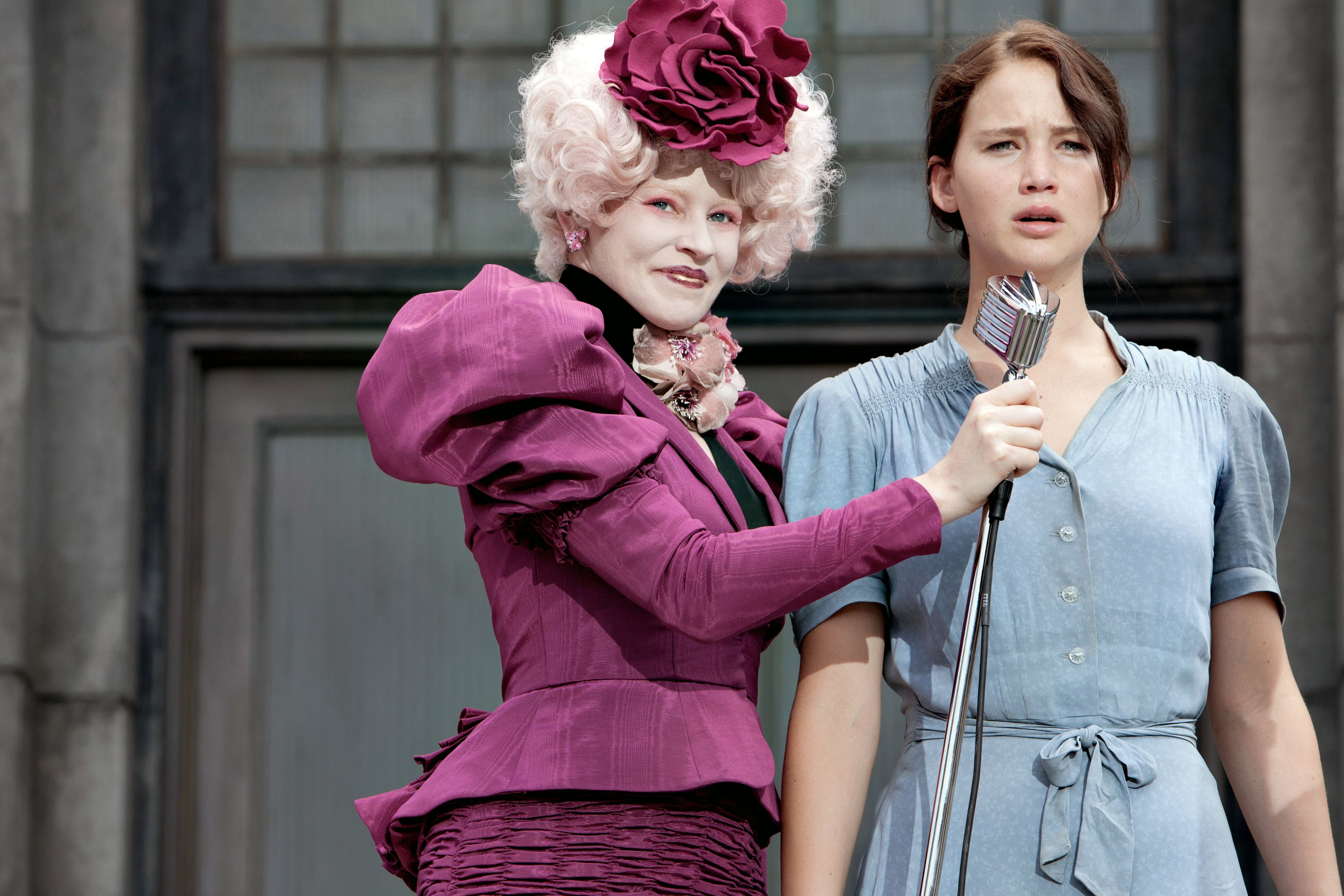[ad_1]
When you think of Hollywood pre-1960, chances are high that the actors spoke with a certain flair. You know the one: lilting and smooth, crisply enunciated and sharply emphasized. Sort of British but not quite, and certainly too posh for the average American territory, it was a distinctly recognizable yet untraceable affectation personified by the era’s biggest stars. Not even journalists could escape its refined clutches.
Dubbed the “Mid-Atlantic” or “Transatlantic” accent, it holds the distinction of being a real accent without meeting the normal qualifications of a “real” accent. For one, although it was once widely used across America, the style didn’t evolve naturally out of a specific regional dialect or develop across centuries. (Despite the name, there’s no secret mash-up country plopped right in the middle of the Atlantic Ocean.) Instead, individuals created it for their own purposes. And although classic Hollywood immortalized it onto celluloid, this Mid-Atlantic accent primarily owes its origins to an Australian teacher.
The Origins of the Mid-Atlantic Accent
Alongside several other phoneticians of the early 1900s, William Tilly helped advance the concept of “World English,” or a standardized accent that all English-speaking countries could adopt. Tilly argued that eloquent oratory skills were essential to society, and advocated for World English precisely because its lack of a defining sound positioned it as a suitable default. His ideas caught on with aristocratic American families who placed value on sophisticated appearances, and private schools in New York and the surrounding states incorporated lessons as part of their curriculums. Many news anchors and radio hosts preferred it for on-air readings, as did the highest of powerful political figures (President Franklin D. Roosevelt). Broadway theater actors also mimicked the approach, especially those performing the works of William Shakespeare; suitable, since Tilly’s World English bore similarities to the United Kingdom’s Received Pronunciation technique.
One of Tilly’s devotees was Edith Skinner, author of the guidebook Speak with Distinction and a vocal coach to the Golden Hollywood elite. Once technological advancements booted out the silent film era in favor of “talkies,” attention naturally shifted to performers’ onscreen linguistics or lack thereof. (Some silent stars weren’t comfortable making the shift; their facial expressions were their instruments of choice, not their vocal cords.) Much like the elite upper-class who wanted their children to reflect their parents’ prestige, that era of Hollywood was preoccupied with crafting an aspirational sense of glamour and grandeur. And to succeed in Hollywood, one needed to meet expectations. Hence, upon Skinner’s advice, the suppression of an actor’s normal accent in favor of the chic Mid-Atlantic method; Skinner became one of the pre-eminent speech instructors of the era.
The Mid-Atlantic Accent Took Hollywood by Storm
By coincidence or by design, the Mid-Atlantic accent was a perfect meeting of form and function for this period in American cinema’s history. Phonetics such as gentler vowels and non-rhoticity (aka, dropping the /r/ sound before consonants and at the end of words) gave line deliveries their own melody, which projected eloquence as much as it complimented the fast-talking, tongue-twisting banter that relied so heavily on rhythmic timing. What charm would screwball comedies like His Girl Friday or The Philadelphia Story have if audiences couldn’t understand all those dueling words launched between the actors like choreographed tennis balls? Other hallmarks, like emphasizing /t/ sounds over /d/s, rounding and extending the /oo/, and subverting the wine-whine principle (when the merging /hw/ sound becomes just /w/ instead) enhanced dramatic conviction or established an atmosphere. Listen to how any Bette Davis or Myrna Loy performance sparkles like kindling to a live fire, or the warm gravitas behind Gregory Peck. Although the Mid-Atlantic accent’s origins undoubtedly lie with an elitist concept, in the right hands (er, throats), it helped tie performers intrinsically to overarching ideas of grace, dignity, and authority, regardless of genre.
Alongside the majority of her fellows, Katharine Hepburn remains one of the figures most associated with the Mid-Atlantic affectation between her naturally arch yet laconic tone, authoritative presence, and multiplicity of starring roles. Hepburn was magnetically energetic in her own right, with rarely a script she didn’t seize between her teeth and shake for all its worth. But she also retained the accent even after it fell out of style with the emergence of method acting. Up-and-coming directors, screenwriters, and actors wanted a more truthful celluloid reflection of real life, hence the rise of Marlon Brando-esque stars from the 1950s onward. That shift also reflected the transformation of American society at large following the emotional displacement of World War II. As such, parents and educators stopped placing as much importance behind speech lessons, and without anyone to continue learning an invented accent that lacked any organic roots, the Mid-Atlantic accent died off.
Newer Examples of the Mid-Atlantic Accent on Film
Certain modern films have still employed the technique for maximum effect, but never without a specified purpose. Effie Trinket (Elizabeth Banks) of The Hunger Games, for example, spoke in Mid-Atlantic as a narrative shorthand to signify her status, and plenty of classic Disney villains assumed its verbiage (in the rare circumstance when a fully British actor wasn’t cast as the bad guy).
Hepburn, however? True to her personal character, the defier of gender archetypes kept her unmistakable sound until the end of her life. In some of her last films, like 1981’s On Golden Pond, she sounded as much as herself as her history preceded her. The move set her apart from her contemporaries, let alone the hot new stars who preserved their authentic accent in the name of accuracy; what an appropriately sly move on her part. That voice, fake or not, is as inseparable from Hepburn as her aura of confidence. One can hardly imagine her, or Golden Hollywood, without it.
[ad_2]
Source link
Armessa Movie News

.jpg)
